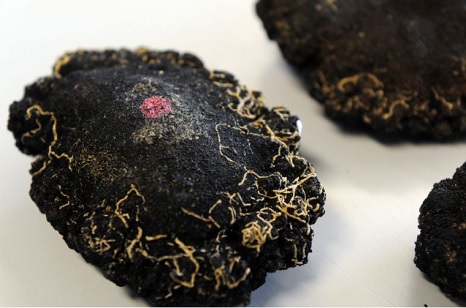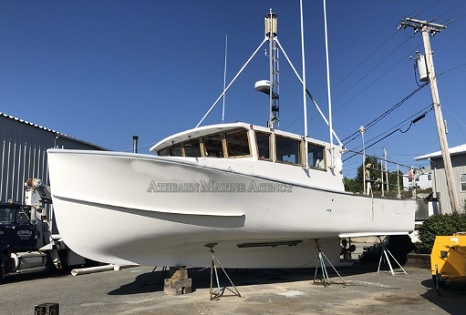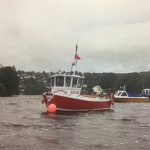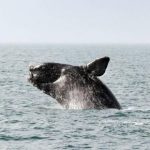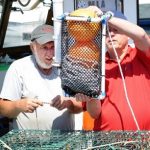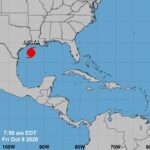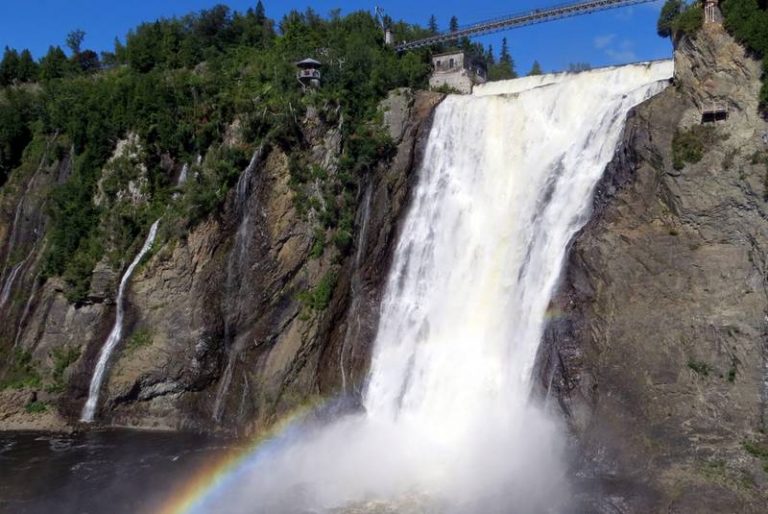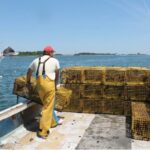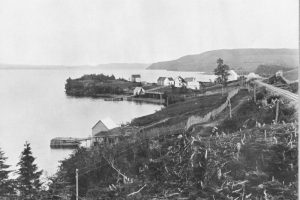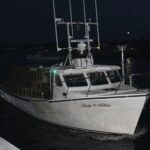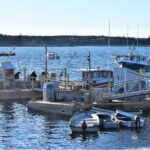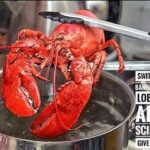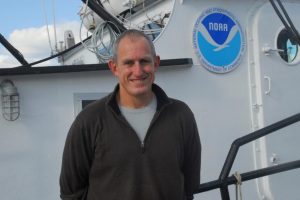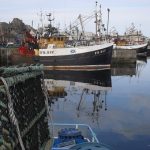Monthly Archives: October 2020
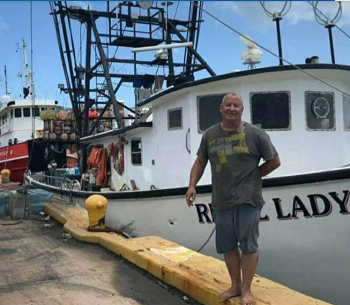
Commercial Fisherman Captain Michael Foy still jailed in British Virgin Islands after two charges dismissed
The Magistrates Court in the British Virgin Islands dismissed the illegal fishing charges against Stafford fisherman Michael Foy, according to his family and attorneys. The court did not dismiss the illegal entry charge and he’s scheduled to stand trial on that charge Oct. 27.,, “It’s definitely a small win on the charges and a big win on the monetary fines. The illegal entry carries a small fine and up to a year in prison, so we definitely want to win that one,” said Kimberly Kelly, Foy’s sister. “I’m just really praying they release him on bail. It will be a lot easier for all of us to prepare during the next 18 days if he were out of prison.” >click to read< 17:16
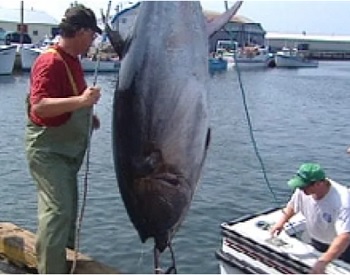
Coronavirus Pandemic’s ‘second wave’ sending P.E.I. tuna prices down
Tuna fishers out of North Lake, P.E.I., are seeing the impact of rising Coronavirus case numbers in central Canada. Tuna buyer and processor Jason Tompkins said the season got off to a good and early start this year. “We had more fish go in July this year than any year in the last 20,” Tompkins told Island Morning host Laura Chapin. “A lot of guys did see the writing on the wall. They took our advice as buyers and went early, and the prices we saw in July and August were some of the highest we’ve seen in years.” But those prices have plummeted as COVID-19 cases rise. Tuna is almost exclusively exported off the Island, with restaurants the main market. >click to read< 13:16

District Court judge denies injunction that would shut down lobster and gillnet fishing in Massachusetts
In a hearing Thursday in United States District Court, Judge Indira Talwani denied an injunction that would have shut down lobster and gillnet fishing in Massachusetts to protect critically endangered North Atlantic right whales until a trial seeking that closure takes place. Richard “Max” Strahan, who identifies himself in court documents as a lobster fishermen, whale watcher and “protector of endangered wildlife species,” sued the state Office of Energy and Environmental Affairs last April under the federal Endangered Species Act. >click to read< 11:41
Gloucester: Lobstermen push against whale rules – ‘We’ve borne the brunt’ – >click to read<
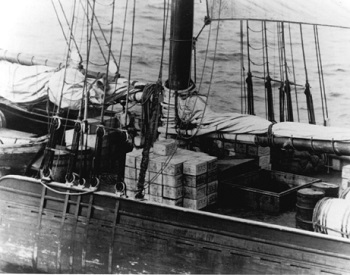
It’s the 100th anniversary! Let’s raise a glass to Prohibition
On a foggy evening on April 23, 1927, the fishing schooner Etta M. Burns was sailing back to New Bedford when the helmsman fell asleep and the boat washed up on the rocks off Squibnocket Beach in Chilmark. As the surf battered the ship, bottles of liquor were released from the ruptured hull and washed up on shore.,, the bottles that washed ashore were marked Old Mac Scotch Whisky, but they had come not from Scotland but from a 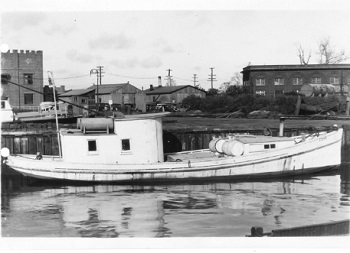 rusty steamer anchored 30 miles off Montauk. They were all totally rotgut. This year marks the 100th anniversary of the 18th Amendment, a constitutional ban on the production and sale of alcoholic beverages that can be seen as the very definition of unintended consequences. Rather than eliminating liquor, this act did more to instill a culture of drinking in a thirsty nation than 100,000 happy hours. >click to read< 10:43
rusty steamer anchored 30 miles off Montauk. They were all totally rotgut. This year marks the 100th anniversary of the 18th Amendment, a constitutional ban on the production and sale of alcoholic beverages that can be seen as the very definition of unintended consequences. Rather than eliminating liquor, this act did more to instill a culture of drinking in a thirsty nation than 100,000 happy hours. >click to read< 10:43

After months in jail, United States Commercial Fisherman Michael Foy goes to trial
On June 9, Michael Foy, a United States fisherman who had been detained aboard his commercial fishing vessel the previous morning, sat in an interview room in the Road Town Police Station, trying to explain what he was doing in Virgin Islands waters. In his telling, Mr. Foy wasn’t aware that the territory’s borders were closed and that he could be breaking the law by waiting near Norman Island for documentation that he said would allow him to re-enter the US. “That’s what all this is about: … I had nowhere to go,” Mr. Foy said during the recorded interview. Nearly four months later and after attracting the attention of two US congressman and one senator,,, Mr. Foy’s trial began Monday in Magistrates’ Court. >click to read< 09:41
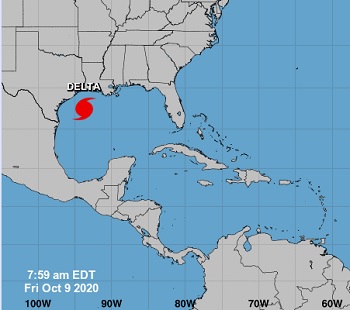
Hurricane Delta Public Advisory Notice
At 0700, Hurricane Delta is moving toward the north near 12 mph (19 km/h), and this motion is expected to continue today followed by a north-northeastward motion by tonight. On the forecast track, the center of Delta will move inland within the hurricane warning area this evening. Delta is a category 3 hurricane on the Saffir-Simpson Hurricane Wind Scale. Slow weakening is expected to begin as Delta approaches the northern Gulf coast later today, with rapid weakening expected after the center moves inland. >click to read< 08:15
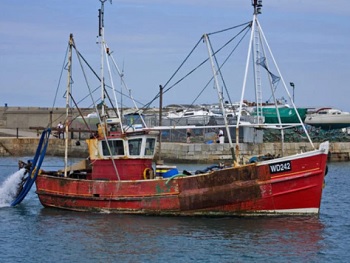
Review Shows Irish Fishing Industry Buoyed By Exports But Brexit & Coronavirus Cast A Shadow
The Department of Agriculture, Food and the Marine’s latest Annual Review and Outlook for the fisheries sector is a generally positive one, though tempered by the challenges of Brexit and the coronavirus. Published today, Thursday 8 October, the review cites CSO figures for 2019 which put the value of Irish seafood exports at €577 million with increases in the value of both salmon and mackerel, Ireland’s most valuable export catches. The coronavirus pandemic has seen similar challenges experienced across the fisheries and aquaculture sectors over the course of 2020 thus far. “Nonetheless, in spite of the difficulties, the fishing industry has continued to keep food in our shops and on our tables during this extraordinary time,” >click to read< 14:10

Real Estate Rent Seekers Furious: Trump Sinks USA’s Offshore Wind Industry
Never a fan of the wind industry, Donald Trump has just destroyed its prospects all along America’s Atlantic coast. Trump’s ban on offshore drilling for oil and gas, has the altogether brilliant side-effect of preventing any more offshore wind turbines from cluttering up the coastlines of several states from Florida to North Carolina, with his sights set on Virginia, as well. Trump’s ban on oil and gas extraction offshore will have little effect on America’s oil and gas sector. America’s shale oil and gas revolution, which has turned the USA into a net oil and gas exporter, is an exclusively onshore affair. But, as to be expected, the effect on its wind industry has sent rent seekers into apoplexy. >click to read< 10:37
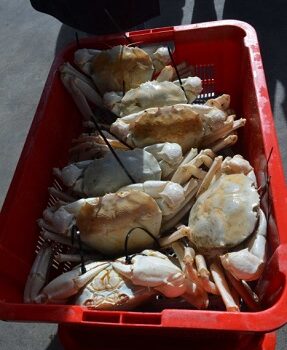
Western Australia’s Crystal crabs immune to impact of coronavirus, selling for more than $300
The crabs are found in a thin trench of water, 80 kilometres off the Western Australia coast, at depths of 800 metres. West Coast Deep Sea Fishery takes to the pristine deep waters all year round in search of the product. Managing director Glen Bosman said he believed he had the best crystal crabs in the world. “Not arguably, it’s fact. We receive the highest price for that species of crab,” he said. The crystal crab is pale white in colour, with distinctly shorter walking legs, and can weigh more than two kilograms. “The crab sits in the middle of the table, is broken up, and then shared by a number or people because of its size. >click to read< 09:55
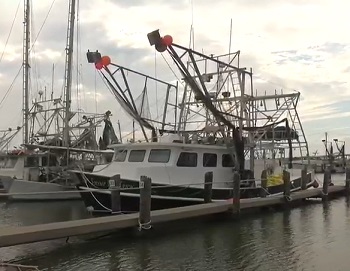
Commercial fishermen in Plaquemines Parish take financial hit after active hurricane season
A voluntary evacuation will go into effect Thursday at 3 p.m. for parts of Plaquemines Parish. You will once again see hundreds of boats in Safe Harbor in Empire on Wednesday night. It’s something commercial fishermen have had to do for storm after storm and they’ll tell you they had to take a big financial hit because of that this active hurricane season. . “Chaos, start up, shut down, start up, shut down. We’ve missed at least 31 days out of the season,” said Chance Lay, a commercial fisherman. “Barely, I’m barely sliding by,” Lay said. >video, click to read< 09:15
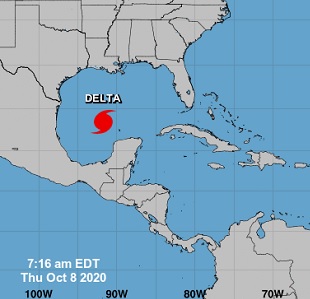
Hurricane Delta Public Advisory Notice
At 700 AM CDT, the center of Hurricane Delta was located by NOAA and Air Force Reserve Hurricane Hunter aircraft near latitude 23.7 North, longitude 92.3 West. Delta is moving toward the northwest near 15 mph (24 km/h), and this motion with a reduction in forward speed is expected today. A turn to the north is forecast to occur by late tonight, followed by a north- northeastward motion by Friday night. On the forecast track, the center of Delta will move over the central Gulf of Mexico today, and move inland within the hurricane warning area Friday afternoon or Friday night. >click to read< 08:10
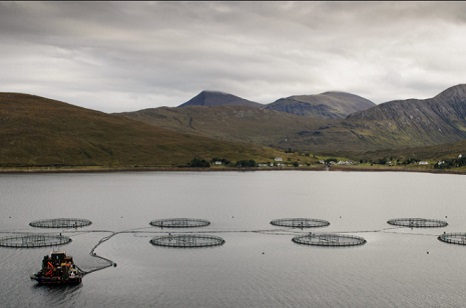
Fury as fish farm pesticide pollution rises 72% in a year
Pollution of Scotland’s lochs from a toxic fish farm pesticide has leapt 72 per cent in a year, according to data from the Scottish Environment Protection Agency (Sepa). Levels of azamethiphos discharged by 76 caged fish farms around the coast increased from 166 kilograms in 2018 to 286 kilograms in 2019. The chemical is known to kill marine wildlife. At the same time emissions of another toxic pesticide, emamectin, from 109 fish farms, rose 26 per cent. Sepa has been trying to limit its use since 2016 because of the dangers it poses to crabs, lobsters and other crustaceans. >click to read< 18:59
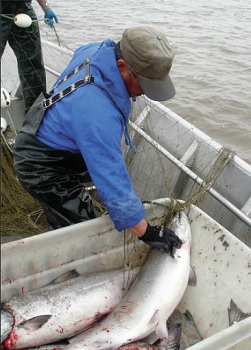
Chum, Chinook returns fall short across Yukon, Western Alaska
Poor chum and coho returns led to some of the lowest commercial harvests in decades across much of Western Alaska and biologists are unsure why far fewer Yukon chinook are making it to Canada in recent years. The Yukon River summer chum return of approximately 733,000 fish was sufficient to meet the minimum escapement goal for the entirety of the massive drainage but it did not allow for a significant commercial fishery and was far less than expectations. Fishing was closed through the first half of the run while it was unclear if a harvestable surplus of chum would be available according to the Alaska Department of Fish and Game’s preliminary Yukon River summer fishery summary. >click to read< 14:55
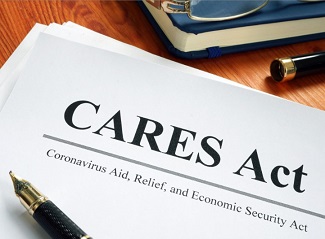
State of Alaska releases plan for $50m in fishing sector COVID-19 relief
The state has released its plan to divvy up $50 million in federal pandemic payments to Alaska’s fishing industry workers hard hit by COVID-19. Federal guidance suggested that the state should set aside more than half of the CARES Act funding for processors, about a third for commercial fishermen and 5 percent for sportfishing guides and lodges. But in a draft released on Oct. 5, the Department of Fish and Game proposes an even split between charter guides, the commercial fleet and seafood processors at 32%. >click to read< 13:22
Athearn Marine Agency Boat of the Week: 44′ Calvin Beal Lobster Boat, 4’4″ aluminum extension, 405-HP Cummins
To review specifications, information and 16 photos, and a video tour, >click here< To see all the boats in this series, >click here< 12:01
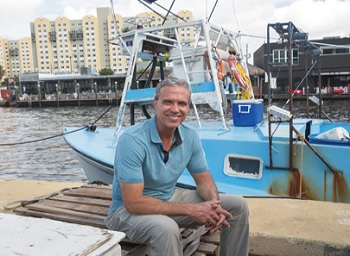
Commercial fishermen sinking as yields fall without China’s buyers
“Commercial fishing operations are an important component of Port Miami River’s marine industrial businesses, which generate countywide jobs,” said Horacio Stuart Aguirre, chairman of Miami River Commission. Offshore fishermen work in a predominantly healthy environment, so Covid-19 hasn’t been debilitating for the workforce, said Luis Garcia of Garcia’s Seafood, a commercial lobster and stone crab business, “but it’s a pandemic in the sense that it has trickled down economically. The price of our product is plummeting because restaurants and bars that buy our product were not in business and we were sitting on the product. “In the past several years we’ve had another revenue stream selling overseas – lobster to China, for example – but that market also shut down.” >click to read< 11:18

Max Strahan driven by “duty” to have stricter measures adopted
To many federal and state fisheries managers, and to most people in the lobster industry, the name Max Strahan conjures images of a fanatic determined to put an end to lobster fishing in the name of saving endangered right whales from extinction. (he is), “I’m a scientist and a very ethical and moral person,” (he’s not) Strahan said, claiming that, of 330 million U.S. citizens, he was the only one to file individual suits under the federal Endangered Species Act (ESA).,, Strahan said he grew up on a farm “somewhere around the area” of New Hampshire and, as a young man, was interested in outdoor activities such as hiking and rock climbing. That led to his interest in wildlife preservation and eventually his efforts to save the endangered spotted owl in the forests of California and Oregon. Strahan filed a petition with the U.S. Fish and Wildlife Service to list the birds under the ESA and ultimately the petition was accepted, the owls listed and much of the Pacific timber industry put out of business. >click to read< 09:39
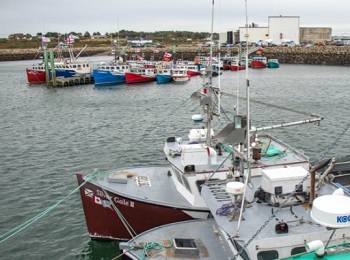
The lobster catch in St. Marys Bay is down, but there’s little consensus on why
DFO has released data showing a decrease in the amount of lobster caught between 2016 and 2018 in St. Marys Bay, the body of water at the centre of a disputed Mi’kmaw fishery in southwest Nova Scotia. Lobster landings in St. Marys Bay were 1,691 metric tonnes in the 2016-2017 season with a record high value of $25 million, according to data released to CBC News by the department. Two years later, landings were down 46 per cent by weight and 32 per cent by value. >click to read< 08:19
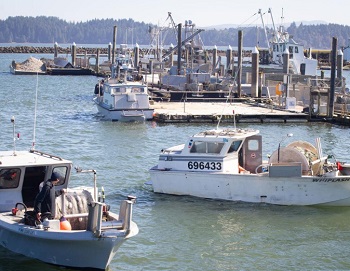
Coho swarm Willapa: Astounding run brings increased limits
An unexpectedly strong coho salmon return in the Willapa has fishery managers and biologists reassessing run size,,,. Willapa’s commercial gillnetters are hoping to get more fishing days this fall after early limits to avoid impacts on scarcer Chinook. Commercial fishermen are often the canary in the coalmine when it comes to reporting what’s occurring offshore. The first signs of a bigger-than-expected coho salmon run began showing up on the Port of Peninsula docks a couple weeks ago. >click to read< 18:28
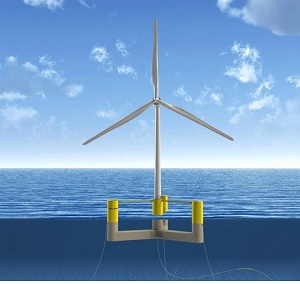
Maine awarded a $2.2M grant to develop a roadmap establishing an offshore wind power industry
The grant, to the Governor’s Energy Office in Augusta, is being made by the Economic Development Administration within the U.S. Department of Commerce. The money will be matched with $267,624 in state funds and $112,457 in local funds. “Unleashing American innovation is critical to our global competitiveness,” said U.S. Secretary of Commerce Wilbur Ross in a news release. “This project will allow Maine to capitalize on its technical leadership in the wind power sector to diversify and grow the state’s economy and make it more resilient.” >click to read< 13:48
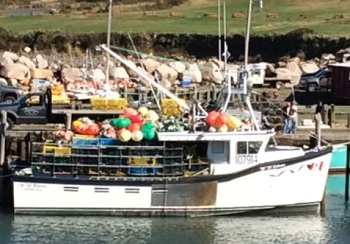
“Disabilities last a lifetime” – DFO must consider fisherman’s charter rights in licence fight
Dana Robinson of Parkers Cove has a medical condition affecting his leg that hinders his ability to stand on a boat for long periods of time. His boat was operating in the Bay of Fundy under a DFO provision that allows fishermen to designate a substitute operator once they provide adequate medical proof of their condition. The provision, however, only allows the substitution for five years. The time limit doesn’t sit well with Robinson. Disabilities, he said, “last a lifetime.” >click to read< 11:21
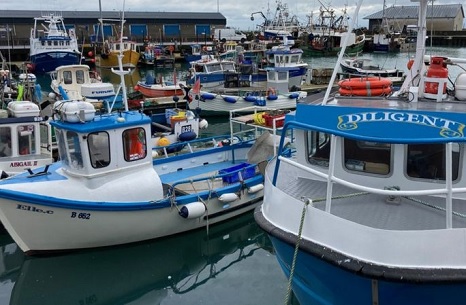
Coronavirus Tie-Up: NI Fishermen offered money to stop fishing
Northern Ireland’s fishing fleet is to be offered money to stop fishing as markets for its produce shrink due to Covid. A £1.7m pot is available to fishermen who wish to stop fishing for six weeks. They can apply to either of two “tie-up” periods between mid-October and the end of November. The closure of pubs, restaurants and workplaces across Europe has seen a big reduction in demand for full prawns and scampi – NI’s main exports. The cash will help will crew costs, mortgage payments on boats, insurance and harbour fees. >click to read< 10:35
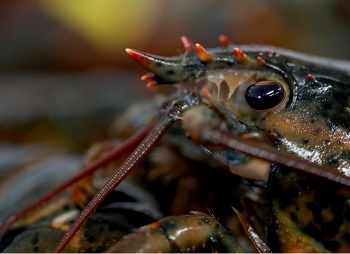
Long a lifeblood, South Shore fishing industry faces numerous challenges
Over his more than five decades fishing commercially, Frank Mirarchi has watched the business evolve from thriving and straightforward to complicated and diminished, with skyrocketing costs, foreign competition and changing regulations choking an industry synonymous with the South Shore. In the late 1960s, when he purchased his first of three successive boats, fish was abundant enough to make a solid living off of. “By 1985 or so, fishing was pretty bad,” Mirachi said. With profits dropping, he switched from having two other crew members to one. In 1994, the federal government stared limiting the number of days fishermen can be on the water to combat overfishing. Before, some spent 200 or more days fishing each year. Over the years, it was gradually reduced to 30. Mirarchi said this “wasn’t particularly successful”,,, >click to read< 08:54

Commercial Fisherman, Farmer, Joseph Michael Kelly has passed away
Mr. Joseph Kelly, 59, of Parksley, passed away on Tuesday, September 29th. Mr. Kelly was born to Thomas and Teresa Kelly on Long Island, and he grew up in Orient, New York, graduating from Greenport High School in 1978. He attended college in Farmville, VA and after a brief period in Long Island, he moved to Parksley, VA, and spent his career working both as a commercial fisherman and a farmer. He was particularly proud of his fishing boat “Toots”, which he used for both for fishing and long-line lobstering in the waters off the east coast of Virginia. Mr. Kelly was a dedicated husband, father, and grandfather. >click to read< 07:58
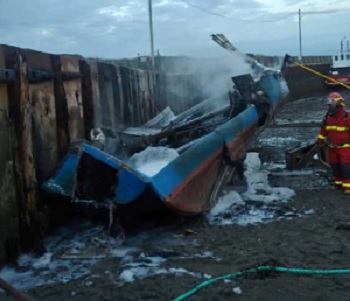
Mi’kmaw fishing vessel destroyed in suspicious fire at N.S. wharf
A suspicious fire at a southwestern Nova Scotia wharf has destroyed a boat belonging to a Mi’kmaw fisherman, casting doubt on his ability to join the upcoming commercial lobster season. Robert Syliboy woke up to a call from a friend early Monday, asking if he had a boat tied up at the Comeauville wharf in Digby County. When Syliboy replied that he did, the friend told him the vessel might be in flames. Photos soon confirmed the 12-metre boat was indeed Syliboy’s. >click to read< 18:53
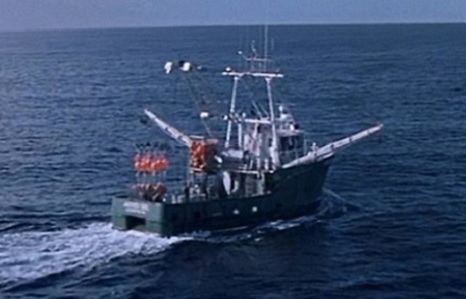
Sam Parisi: Remembering the F/V Andrea Gail, and the loved ones left behind
On October 28,10991, we lost six fishermen during the Perfect Storm aboard the F/V Andrea Gail. Captain Billy Tyne, David Sullivan, and Robert Shatford of Gloucester, Dale Murphy and Michael Moran, both of Bradenton Beach, Florida, and Clifford Pierre of New York City. My heart goes out to those families, and loved ones, may they not be forgotten. I can still remember the boat and the owner Bob Brown, also called “Suicide” Brown. He was the first lobsterman to fish off the Canyons over a hundred miles from land with his forty five foot lobster boat. >click to read< 17:24
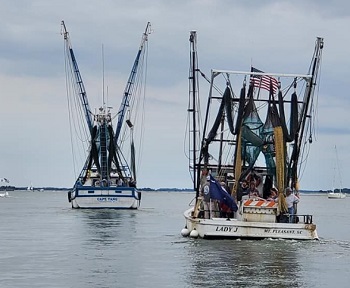
Honoring Captain Wayne Magwood
The Town of Mount Pleasant’s Special Events staff worked with the Magwood family to organize an event to honor the life of Wayne Magwood on Thursday, Oct. 1. Nearly 200 people attended the Celebration of Life ceremony for Magwood at the Mount Pleasant Waterfront Park from 6-7:30 p.m. On Saturday, Oct. 3 the Mount Pleasant shrimp fleet, followed by personal and charter boats, left Shem Creek in a parade in memory of Magwood. A gallery of 52 images is featured, >click to read< 15:47

“Wind is the culprit,” – NOAA study shows wind influence in GOA Pollock abundance
As Bob Dylan famously said “you don’t need a weatherman to know which way the wind blows.” The study conclusively shows for the first time that year-to-year variation in the geographic distribution of juvenile Pollock in the Gulf is driven by wind direction, which may keep juvenile Pollock in favorable habitat, or push them into currents and on to less favorable conditions. “Wind is the culprit,” according to AFSC biologist Matt Wilson. “The consequence is that when a large proportion of the juvenile population is transported to the southwest many of those fish are likely lost from the Gulf of Alaska.” >click to read< 11:17
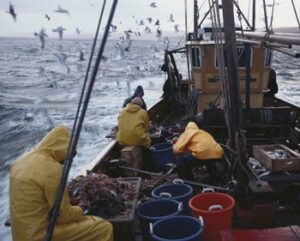
Will Britain lose another fishing war?
On average, a fish in the North Sea crosses five territorial waters frontiers every day. They don’t have passports or face quarantine. Britain made a fool of itself during the three cod wars it fought with Iceland between 1956 and 1976. British fishermen decided these were “traditional” waters and the Royal Navy was sent in to try and intimidate the Icelandic fishing boats. Other than geo-thermal energy, banking and airlines, the main Icelandic product is cod. They depended on hauling cod of out the northern waters close to Arctic Circle — we looked absurd trying to stop them. Does a new fish war with France, the Netherlands, and Spain now loom? The problem arises partly from the 1982 UN Law of the Sea convention which extended territorial waters out to 200 km. >click to read< 10:09






